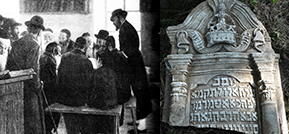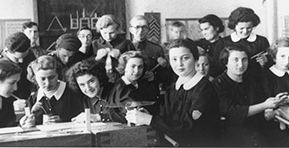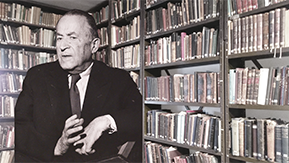The first known rabbi of Bohorodchany is mentioned in 1720 and was Rabbi Shimshon Ha-Levi Heller, a son of Rabbi Avraham, a descendant of the famous Rabbi Yom-Tov Lipman Heller. His son, R. Meir, inherited his position and was mentioned as the Rabbi of Bohorodchany in 1750 (Pinkas Hakehilot, 72).
In the 1780s, another representative of the Heller family took a religious position in the Bohorodchany community. It was Rabbi Avraham Noah Halevi Heller (d. 1786), the son of Rabbi Aharon Moshe Halevi Heller (1740-1795) and brother of the founder of the Zbarazh Hasidic dynasty Rabbi Meshulam Faibish Halevi Heller. After being a scholar in famous kloyz in Brody and serving as the rabbi of Dolina, he became the preacher (magid meisharim) in Bohorodchany in the last years of his life (Alfasi, 1:179). He wrote the book Zrizuta de-avraham, a commentary on the Torah and Pirkei Avot (Piekarz, Be-yemei, 39, 168).
Around 1800, the Rabbi of Bohorodchany was R. Yitzhak Frenkel (Wunder 4:289).
In the first half of the nineteenth century, a grandson of the first Zbarazh admor Rabbi Meshulam Faivish Halevi Heller, named after him, R. Meshulam Faivish Heller son of Barukh Yitshak (1800-1840), established his court in Bohorodchany. He was an important figure in the Hasidic world, a student of Rabbi Haim from Czernowitz, and the author of the book Sfat Emet which was published in 1880 in Kolomyia (Alfasi 1:168).
In the 1870s, the rabbi of Bohorodchany was Rabbi Meir Hacohen Rapoport (first mentioned in 1870) (Pinkas Hakehilot, 72).
He was succeeded by Rabbi Uri Shraga (Faivel) Schreier. Rabbi Schreier was one of the most prominent adherents of Palestino-centric politics and of Zionism among Orthodox rabbis (Gelber, Toldot, 1:347) and served as the rabbi of Bohorodchany until his death in 1898 (Pinkas Hakehilot, 72).
In the beginning of the 20th century, Rabbi Hillel Langerman served as a moreh tzedek. He founded the yeshiva "Torat Haim" in 1905 (Pinkas Hakehilot, 72).
After the death of Rabbi Schreier, R. Pinhas Halevi Horwitz was elected to be the town's new rabbi in 1898. He also held pro-Zionist positions (Ha-magid, no. 1, 5 January 1899, p. 5). Rabbi Pinhas Halevi Horwitz served as the rabbi and the head of the local yeshiva "Torat Haim" until his death in 1920 (Ohalei Shem, 223-4; Pinkas Hakehilot, 72).
After the passing of Rabbi Horwitz in 1920, a dispute broke out over the succession process. This conflict was resolved only in 1927, after the arbitration of three rabbis from outside of Bohorodczany (Pinkas Hakehilot, 72). For a period of time in the early 1920s the rabbi of Bohorodchany was R. Nisan Haim Rosenbaum from the Kretshnef branch of the Nadworna Hasidic dynasty; later he moved to Drohobycz (Alfasi, 1:84, no. 63; M. Hasten, Mark My Words, 6-7). The rabbinic post was then filled by Rabbi Nebenzal (M. Hasten, Mark My Words, 6-7).






